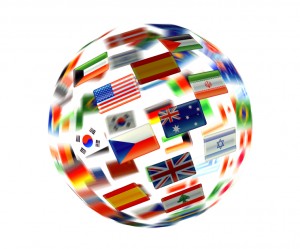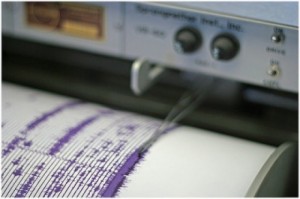 Daughter of Spanish King Accused of Alleged Corruption
Daughter of Spanish King Accused of Alleged Corruption
The Infanta Cristina, younger daughter of Spain’s king was accused today of influence peddling in a case of alleged corruption that involves her husband, Iñaki Urdangarin, judicial sources said today.
The judge conducting the case Noos, Jose Castro, called the Infanta to testify on April 27th, regarding the cause that investigates the supposed embezzlement of more than 6,000,000 euros from public funds.
Urdangarin was accused in December 2011 and in his most recent appearance before the judge in a court from Palma de Mallorca (Balearic Islands), the son-in-law of king Juan Carlos I, strove to dissociate the Crown and his own wife from that scandal about the supposed embezzlement of several millions of euros from the Balearic and Valencian autonomous governments to the Institute Noos.
The former handball champion who became a businessman is under investigation since he was, from 2004 to 2006, the president of Noos Foundation, a non-profit institution that allegedly received a high sum of public money from the Balearic government and embezzled it.
According to judge Castro, the testimony of Urdangain’s partner, Diego Torres, and several e-mails added to the case that contributed to doubts about the Infanta being unaware of the use her husband gave, to her name, when mentioning her as member in the Institute Noos’ board of directors.
The document says that the Infanta had to have known that her name, status and post appeared in a Foundation with which her husband allegedly increased his wealth.
Drugs Production in Afghanistan Grew after NATO Invasion
More than a million people have died as a result of heroine processing from Afghanistan, production which grew 40 times since the invasion by the North Atlantic Treaty Organization (NATO), said today the director of the antidrug Federal Service of Russia, Victor Ivanov.
The official thinks that because of the repeatedly announced removal of the troops of the North Atlantic Treaty Organization and the consistent transformation of the situation in the central Asian country it will be necessary to analyze in depth the panorama that develops over time.
Regarding Russia, Ivanov suggested in a press conference on the Afghan topic and drugs, that a more effective position had to be designed in collaboration with Afghanistan and the regional states, like Pakistan and Iran.
Ivanov repeated his point of view on the production of drugs by defining it as the main instability factor in this impoverished nation of central Asia.
The so-called Russian czar against drugs said recently that NATO, in the exercise of its role at the head of the occupying forces, did not face down drug trafficking, and without a continuous struggle against this scourge, the publicized combat against terrorism would be a failure.
Ivanov was sorry that after the NATO operation in 2001, the situation has not been reverted, there is a continued colossal growth in the production of heroine in this country, with more than one million dead around in the world as a direct repercussion.
He added that organized transnational crime obtained profits in the last 12 years superior to three million dollars, for the sale of this type of drug, especially in Europe.
 Jamaica Told: Prepare for Big Quake
Jamaica Told: Prepare for Big Quake
Geophysics professor Eric Calais of Purdue University is urging the island’s government and various stakeholders to understand that the threat of a big quake hitting the island is very real based on the area’s history and active seismic activity.
The US seismic expert visited the country and has urged Jamaica to start long-term efforts to prepare for another major earthquake on the island, where the seaside capital was mostly destroyed by a huge tremor just over a century ago.
Prof Calais, visiting the island over four days during a mission with the United Nations Development Programme, said most scientists agreed Jamaica would most likely be exposed to a quake with a magnitude of 7 or 7.5. An earthquake of magnitude 7 on the Richter scale is considered “major” and capable of widespread, heavy damage according to the Caribbean 360 web site.
Jamaica has a “good foundation” to tackle risks, especially when compared to nearby Haiti, the professor said. The island is situated along the same seismically active plate boundary as Haiti and experiences about 200 earthquakes per year, most of them small.
Jamaica’s southern capital of Kingston was destroyed and around 1,000 people were killed in a 6.5-magnitude quake in 1907.
Researchers with the University of the West Indies have said that if Jamaica were to be hit by a quake like that one now the island could suffer nearly half of the island’s gross domestic product in damages.
But at the same time, I think it’s important to realise the foundation is not at the level that’s sufficient to face a challenge of a possible magnitude seven or seven-and-a-half,” said Prof Calais, adding that he does not believe that the level of hazard has changed in Jamaica since the 2010 quake that levelled Port-au-Prince in Haiti.
Via PL
